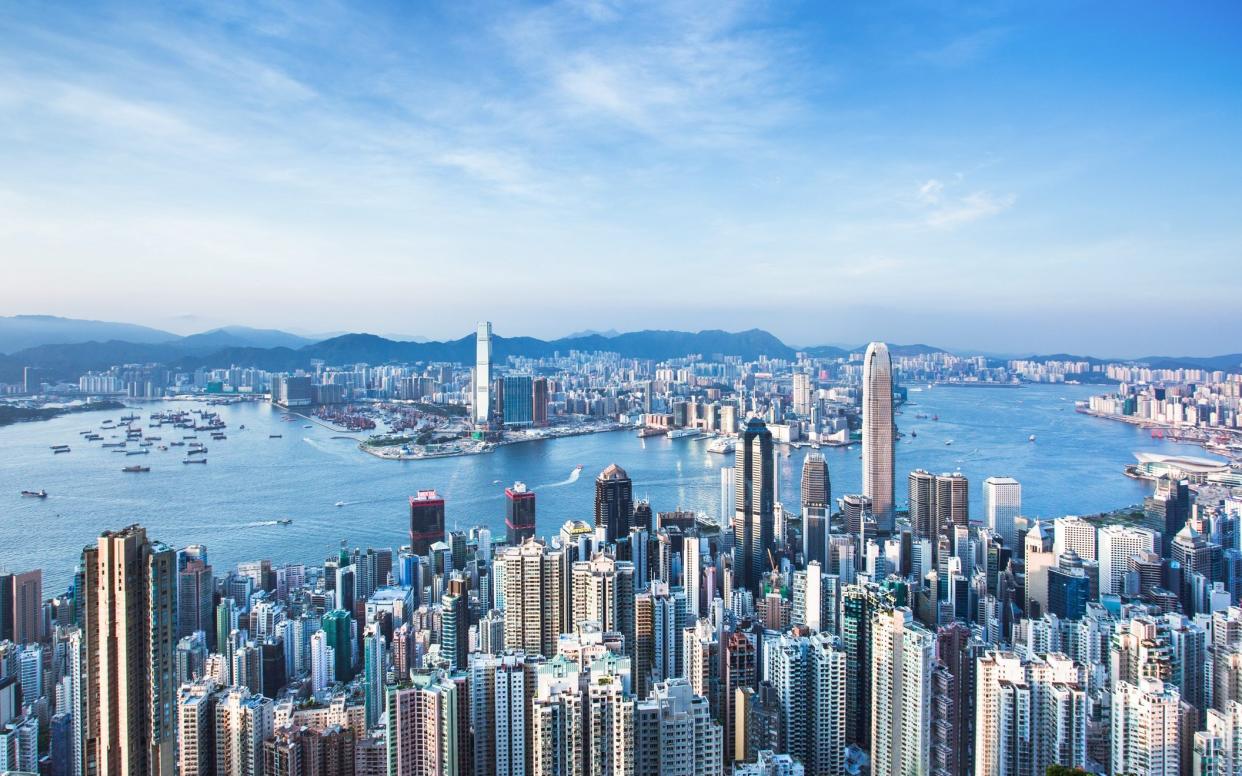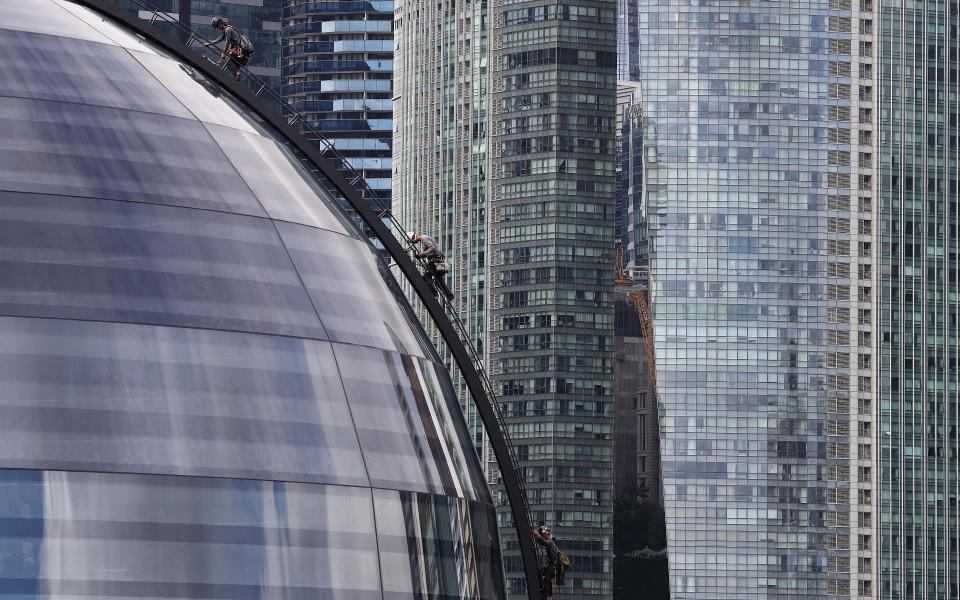Thousands of expats around the world forced to flee their adopted homes because of coronavirus

In 2005, my family traded in a little cottage on the edge of the River Wey for a mid-century home on Lantau Island in Hong Kong. Palm trees replaced the willow at the end of our garden, and the South China Sea stood in for the Thames tributary that we’d walked along all our lives.
We soon settled into a new rhythm of life in the teeming metropolis: the cranky kitsch cha chaan tengs (old-school Hong Kong cafés) grew to be familiar, just like the smell of dried fish in the markets and the daily, ear-splitting sound of drilling into concrete.
As time went on, we made friends from around the world and adopted new traditions: dim sum lunches on the weekend and warm Boxing Day hikes over mountains. We watched lion dances at Chinese New Year and celebrated the mid-autumn festival amid lanterns on the beach. But, just as it has for millions around the world, the pandemic brought with it new plans for my family’s immediate future.
Within a couple of months of Covid-19’s arrival, air travel was shut down. Global lockdowns and closed borders meant the number of passengers buying plane tickets dropped by up to 96%, and it quickly became clear that my dad’s job, as a pilot, was in jeopardy.
On October 21, his airline, Hong Kong’s regional carrier Cathay Dragon, was “axed” as part of a company-wide restructuring that left 2,500 cabin crew and pilots unemployed. The airline he had flown with for the best part of two decades no longer existed, marking the end to our life in the city we’d grown to think of as home.
In just two months, my parents, like countless others around the world, were pushed to extricate themselves from one life and start another. They said goodbye to friends, while dealing with the bureaucracy associated with leaving (12 large boxes were initially thought to be sufficient for the move, it turned out to be around 40) and the stress of losing a job that my dad knows will probably be his last.
On a frantic mission to visit every place we had enjoyed over the years, there were picnics on Peng Chau, seafood dinners in Sai Kung and tram rides up to The Peak for the last time. Plus, a bucket list to tick off too, the things we’d always planned to do but life had distracted us from. Since October, we’ve visited the remote islands of Tai Po and Tap Mun, and had dinner on a sanpan in the Causeway Bay Typhoon Shelter, where the skyline of Hong Kong served as the backdrop for the chef miming how the lobster moved before we had eaten it.

In many ways, we’ve been lucky that our problems have been mostly emotional. My parents are aware that leaving Hong Kong was never going to be easy and perhaps a push was the only way it was going to be done at all — but for other expats the issues run deeper.
Andrew Henderson hasn’t been back to live in his home country since he left the depressed mining town of Fife in Scotland at 20 years old for oil exploration work in China, Canada, Africa and the Middle East (Syria, Jordan and Egypt). He later gained a private and commercial pilots licence in America and joined Alitalia, then Cathay Dragon.
He’s spent nearly 40 years living abroad, 23 years of which have been in Hong Kong. “You grow away from your home culture,” he explains. “You culturally adjust to wherever you are and have to be a bit of a chameleon.” His three children were born in Hong Kong, and his German wife naturally feels no affinity to Edinburgh, where they plan on moving next year.
Henderson’s two boys are in the middle of their A-Levels and GCSEs, so the family, who have permanent residency, have decided to stay in Hong Kong until next summer so they can finish their exams without interruption.
But that means paying £5,500 a month out of his own pocket for schooling and downsizing from their current apartment, which was previously paid for by the company. (Hong Kong retains its crown as the most expensive destination in the world to buy and ranks third after New York and Abu Dhabi for rentals.)
“If people in the UK lose their flying job, it’s possible they might lose their house if they can’t pay their mortgage, but mostly they’ll still be living where they were,” Henderson says about being made redundant while living abroad in the pandemic.
“They don’t lose the infrastructure around them. But we lose everything, we’re moving house, [my children] are moving schools, and probably the worst thing is losing all our friends, the little support network you had of friends and colleagues.”
But it’s not just people in Hong Kong that have been affected. In the United Arab Emirates, tens of thousands of expats have been forced to leave, as residency is tied to employment and there are no citizenship routes for non-nationals. And in Singapore, economists forecast 200,000 people will be out of work by the end of the year, with expats (in many ways understandably) expected to bear the brunt as the government scrambles to save jobs for locals.

For Kevin, who worked in investment banking for 35 years — living in Japan in the late 80s, with stints in Hong Kong in the early ‘90s and later Singapore, where he later transferred to FinTech — leaving Asia did not happen in the way he would have liked. Ten hours after the country went into a full lockdown on April 7, he received a call from one of his bosses who told him they were terminating his employment with immediate effect.
He had a huge list of things to do: end a tenancy contract for the old shop house they rented on Emerald Hill that still had a year left on the lease, close down utilities payments, settle taxes, sell furniture, and find a removal company in just 28 days.
Kevin also needed to terminate their helper, who was from the Philippines and relied on the family’s employment for her Singaporean visa, without another family she would have ended up in a dormitory before her deportation — in Singapore these had turned into a hotbed for Covid-19. All of this would have been a feat under normal circumstances but during lockdown it proved almost impossible.
After a plethora of exasperated emails and calls to the Ministry of Manpower, Kevin was able to get a three-week extension on his stay in Singapore. On May 26, when he sat down on his Singapore Airlines flight back to the UK, “there were so many different emotions but the overriding one was relief,” he says. “Relief that I was going back to the homeland, sometimes you just want to be where your passport is from.”

As it does every time the election comes around in Singapore, and even more so during the coronavirus pandemic, there is a groundswell of nationalism fostered by Lee Hsien Loong’s People’s Action Party that’s designed to make Singaporeans feel as though the government puts them first. There’s a shift towards anti-foreigner rhetoric that Kevin says could be felt before he left.
“The lack of support from the Singaporean government was very disheartening and just reinforced my view that getting back to the UK was absolutely the best thing that could happen to me.”
That’s not to say Kevin, like Henderson and my family, wouldn’t do it all again. Navigating repatriation during a pandemic and watching as the roots you thought you’d built crumble in an instant has been difficult, to say the least. But overall the positives of living abroad have far outweighed the negatives even if leaving has been a bitter pill to swallow.


